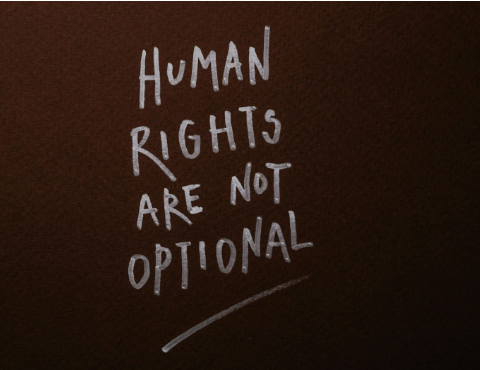
How much could I pay you to shoot someone? What is the monetary value of a clean conscience?
This debate has been waged since the beginning of warfare itself. Mercenaries, or soldiers who are paid to fight for a foreign power, are not a new phenomenon. In fact, scholars believe that mercenaries date back to the rise of civilization in the Fertile Crescent, with specific evidence suggesting that Ramses II of Ancient Egypt hired 11,000 mercenaries to fight in the Battle of Kadesh in 1290 BCE, considered the largest battle of ancient times.
Oftentimes, poor men who faced dire economic circumstances would find themselves taking up arms for a salary. Mercenaries thrived for centuries, fighting across all civilizations and time periods, up until the end of the 19th century, when these hired forces became increasingly obsolete with the changing methods of waging war. Only in the 1950s and 1960s did mercenaries make a small resurgence in isolated conflicts in Israel and Rhodesia. Today, mercenary warfare takes a different, more corporate form and has been highly contentious within the international community.
The United Nations actually outlawed the “recruitment, use, financing and training of mercenaries” at the United Nations Mercenary Convention in 1989. This treaty, ratified by 33 states, went into effect in 2001. The U.N. defines mercenaries very narrowly, which actually complicates international law regarding soldiers: a mercenary is “any person who is specially recruited… in order to fight in a foreign-armed conflict… motivated… by private gain.” According to this U.N. definition, mercenaries must also receive substantially higher pay than soldiers of the national army.
Neither the United States nor Great Britain has signed the U.N. resolution. Instead, the United States (and many other nations, for that matter) deals with private military and security contractors, which offer weaponry and protective services for a range of diverse clients. It’s estimated that between 2003 and 2007 the State Department contracted up to 30,000 private security agents in Iraq alone to provide protective services for transporting diplomats. The role of the PMSCs extends further than just security guard: certain firms offer combat skills, logistical planning, covert operations, supply chain management, arms collection, intelligence gathering, and more. Strategically, hired military help can be cheaper and more effective than using a national army because the contracting nation does not need to maintain and train a standing force when the PMSC can provide its own resources and train its own soldiers.
PMSCs grew massively following the decline of the Cold War, when militaries across the globe were reduced and ex-soldiers were reintegrated into the workforce. Between 1988 and 1998, 97 American military bases were closed, and the U.S. armed forces were reduced from over two million strong to just over one million. This was a global trend, and ex-soldiers needed to find jobs quickly. PMSCs blossomed to meet the new demands all across the world. Corporations such as Blackwater, the infamous security agency now known as Academi, Israel’s ICTS International, the Dominican Republic’s Northbridge Services Group, Unity Resources Group, an Australian-owned private corporation, Aegis in Britain, and Peru’s Defion Internacional are all major players in the global security market today.
To even consider that there were equal numbers of private contractors in Iraq in 2007 as American soldiers is astounding. The American security industry is a giant, estimated to be worth about $350 billion, consistently growing since the decline of the Soviet Union, with particular spikes after 9/11. However, private military corporations extend far beyond the realm of just the United States. PMSCs have a deep history embedded in Africa and a tendency to recruit and operate in Latin America. The following video chronicles Blackwater’s controversial role in Iraq in the past decade, which has increasingly brought awareness to the role of PMSCs in war zones.
Private military companies are quite different from nation-states, the traditional wielders of the military: they’re apolitical, global market players, and are motivated by profit, no matter in which country this work may be found. The modus operandi is violence. While national armies fight to decrease violence in the long run and prefer to work via law enforcement to deescalate conflict, states pay private military companies to use militaristic violence to complete a contracted goal.
But are these soldiers mercenaries? They’re hired and paid by a corporation, rather than recruited into an army managed by a government.

Clearly, the line between mercenary and security agent becomes murky. However, the international community agrees that PMSCs are not mercenaries because they do not fall within the definition established by the U.N. These private military firms and security agencies are an animal of their own, poorly regulated by international law.
The United States justifies outsourcing services to private firms for a variety of reasons. Maybe it’s cheaper to hire another service than have the American army step in, as was the case when the State Department hired Blackwater to protect diplomats in Iraq and Afghanistan; maybe hired security forces are contracted to perform logistical work, because after all, someone needs to deliver the kitchen equipment safely so hungry soldiers can eat.
However, the division between contractual combat missions and mercenary activity becomes hazy when considering what role the firm may actually be playing in the conflict. For example, following 9/11, the CIA contracted Blackwater to lead an assassination service targeting Al-Qaeda operatives. As it turns out, Blackwater was very good at this, and outsourcing this service enabled the United States to carry fewer legal responsibilities in the case of failure, misconduct, or breaking international humanitarian law. Mercenaries or not?
In many cases, these private security firms—Blackwater, DynCorp, Raytheon, Triple Canopy, to name a few— are literally running armies to do work that remains relatively clandestine and unchecked by U.S. public opinion and international military law. Compare this to the scrutiny faced by the U.S. Armed Forces, and it’s clear that these hired armies are incredibly useful for waging warfare that may be risky for politicians wary of public opinion, or that may reflect poorly if waged by a national army. As private firms, these companies are not held accountable to the Freedom of Information Act that would require transparency in all of their actions. The White House may bankroll these firms, but the White House may not even know what’s going on.
The use of PMSCs has profound repercussions for the nature of warfare today. Scholars suggest that the rise in PMSCs is altering traditional practice of global warfare, if only within the last two decades. Typically, the state is responsible for waging war, but introducing private actors has produced radical changes: a new warfare defined by flexible front lines, insurgency, localized skirmishes, and low-level conflict, rather than the massive concentrated battles of the past. Ask anyone and they can probably name a battle from past wars—perhaps the Battle of Kadesh, Battle of Gettysburg, or the Battle of the Bulge. What’s the name of a battle from the Iraq War?

PMSCs have a notorious reputation of human rights abuse and international humanitarian law-breaking. DynCorp was involved in sex trafficking in the Balkans during the Yugoslav Wars of the 1990s, Blackwater was implicated in the unjust murders of 17 Iraqi innocents in 2007, and CACI International and Titan Corporation have both been found guilty of perpetrating 30 percent of the torture in Abu Ghraib prison, which has received widespread international condemnation. These examples represent only a few of the known abuses.
The United Nations and much of the international community disproves of the use of PMSCs, yet the UN still contracted Executive Outcomes for logistical operations in Africa. PMSCs are rarely held accountable for their actions, so the next step is establishing firm regulatory procedures to ensure that these new agents of war do more to stop the violence than continue it. When considering the prominence of PMSCs today, it’s understandable why these firms are receiving critical attention now, especially in light of the seemingly endless accounts of abuse that are flowing out of war zones. However, these corporations are major players in the global military sphere today and are not going anywhere in the foreseeable future. It’s up to the rest of the international community to adapt and accommodate them.
– By Sam Schaffer/Photo Credit: imgkid.com


